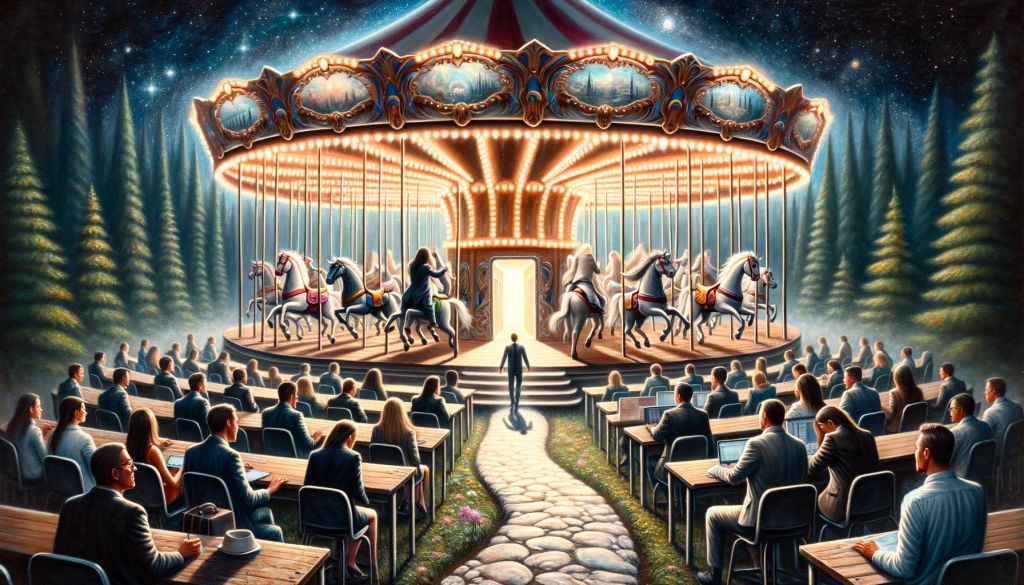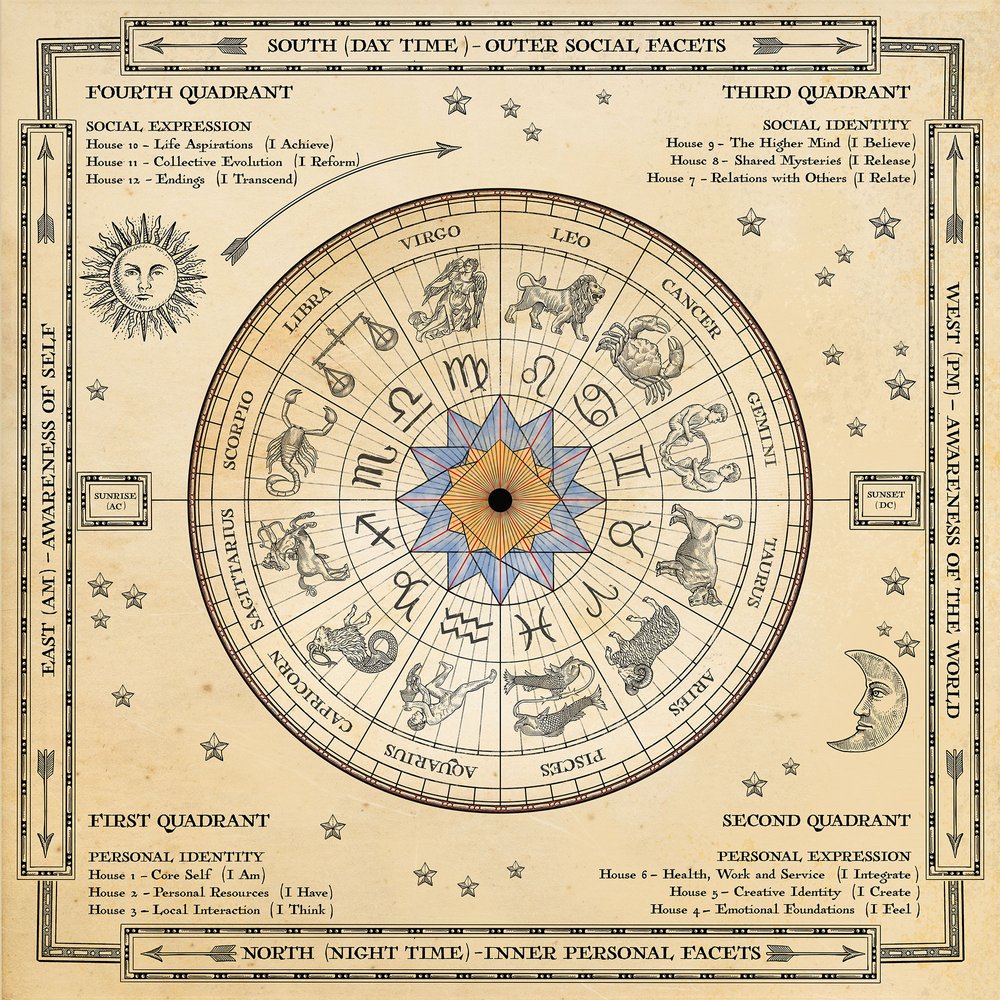
Week after week, millions across the UK grip their lottery tickets with anticipation, viewing them as talismanic omens of a life-altering windfall – an instantaneous liberation from the daily grind. With over 70% of British adults regularly participating in this ritual of chance, the National Lottery has embedded itself into the cultural fabric.
But how is this cultural fixation affecting our ability to value and strive for purposeful work?
Millions engage not just in the hope of winning the lottery, but in elaborate fantasies about the life-changing outcomes it could bring. These fantasies often eclipse the pursuit of personal growth and societal contribution, fostering an escapist mindset.
They siphon our creative energy away from cultivating career paths aligned with unique talents and values. This passive reliance on luck as a shortcut to an idealized existence undermines perseverance, self-actualization, and the fulfillment inherent in earned achievements.
This post aims to dissect the National Lottery’s stranglehold on the collective psyche and its detrimental impact on our ability to forge purposeful vocational visions. We will explore how this obsession with unearned wealth obstructs ingenuity, breeds disillusionment, and perpetuates a culture disconnected from the challenging yet rewarding journey of self-discovery and goal-oriented effort.
By stripping away the layers of this phenomenon, we can reclaim our imaginative prowess and channel it towards more constructive, soul-satisfying endeavors – ones allowing us to contribute to society while actualizing our full potential.
Chasing Phantoms
The National Lottery has profoundly impacted British society since its inception. Over the years, it has created over 7,000 new millionaires through a staggering £92 billion in total payouts.
Its widespread popularity was most evident during the first double-rollover jackpot in January 1996. At that time, a remarkable 86% of British adults participated, sparking a nationwide frenzy. This feverish participation captured the collective imagination and demonstrated the extraordinary fervor the lottery can inspire across the country.
The collective yearning for lottery success unveils a deeper cultural narrative, one that frames work as an unwelcome necessity rather than a path to personal and societal enrichment. This perspective not only diminishes the value of engaging in meaningful vocations but also amplifies the allure of financial windfalls as the ultimate escape from the obligations of work.
This deep-seated attitude overshadows the potential for discovering joy and significance in our careers, promoting a fantasy of escape that impedes our progress towards self-discovery and achievement through valuable work.
As Laurence G. Boldt eloquently states in “Zen and the Art of Making a Living”:
“A problem-solving approach to work puts us in a defensive posture, from which we hope for escape – ultimately, from work itself.”
This defensive mindset fuels the aspirational appeal of the lottery’s promise – to provide an exit from labor into a life of leisure, which many in society view as the ultimate marker of success.
“Since work is something we are forced to do to solve our problems, the implication is that no problems equals no work. So, many dream of winning the lottery and ‘solving all their problems’ and not ‘having to work.”
This reluctance towards work ignites fantasies circumventing the labor process, a role the National Lottery adeptly fills. By offering the prospect of immediate wealth, it embodies the collective wish to transcend the mundane aspects of work life in favour of a dream where unearned riches ensure freedom from professional commitments.
The Fantasy of Instant Wealth
The allure of the National Lottery, while offering temporary amusement, exerts a profoundly negative impact on our collective psyche and our attitudes towards work. Its most significant harm stems from diverting creative energy away from developing genuine vocational goals and personal advancement.
Rather than channeling creativity into exploring one’s innate skills, core values, and highest potential, it fuels simplistic fantasies of attaining sudden, unearned wealth and a life of luxury through sheer chance.
This reductive fantasy of circumventing labor and effort entirely undermines the challenging yet infinitely rewarding journey of self-discovery, goal-oriented discipline, and the inherent sense of fulfillment that blossoms from earned accomplishments.
Consequently, it hinders the journey towards self-fulfillment and creative expression, encouraging a passive, escapist approach to pursuing life’s ambitions—a stance that is fundamentally disconnected from the realities and demands of authentic personal and professional development.
On a deeper psychological level, the lottery’s promotion of “instant success” constructs an illusory fantasy realm diametrically opposed to the inevitable challenges, setbacks and failures that accompany any real, hard-won achievement.
This disconnect breeds disillusionment, fostering unpreparedness for the rigors of personal and vocational self-realization. It prevents creative flourishing by establishing wealth as a precondition for action, rather than motivating individuals to innovate boldly within their present circumstances.
The pervasive “if I only had money” mindset actively obstructs ingenuity itself, insidiously suggesting one’s potential is inherently limited without first amassing significant capital. This pernicious financial determinism stifles the very motivation to explore creative solutions by maximizing the resources already available.
As a result, the lottery fantasy serves as an active blockade to the very qualities of resourcefulness, resilience and inventiveness that could catalyze genuine vocational success on one’s own empowered terms.
Ultimately, the National Lottery’s stranglehold on the collective imagination represents a great squandering of potential – the wholesale diversion of creative energy away from developing skills, cultivating self-discipline and defining one’s highest purpose.
While it entices us with the prospect of simplicity, it also diminishes the critical personal traits and perspectives that are vital for bringing our ambitious goals to fruition through significant, intentional work.
The Foundation of Escapism
Because the neurotic, as long as he must adhere to his illusions about himself, cannot recognize limitations, the search for glory goes into the unlimited. Because the main goal is the attainment of glory, he becomes uninterested in the process of learning, of doing, or of gaining step by step—indeed, tends to scorn it. He does not want to climb a mountain; he wants to be on the peak. Hence he loses the sense of what evolution or growth means, even though he may talk about it.
Karen Horney – Neurosis and Human Growth
The promise of the lottery, to effortlessly transform one’s life into one of wealth and luxury, sets the stage for a deeper psychological exploration. In essence, the draw of the lottery stems from a neurotic impulse, with fantasies of attaining wealth and power taking center stage.
These fantasies become the focal point, offering an illusory shortcut to an idealized version of oneself that is both affluent and influential, all the while conveniently bypassing the underlying neurosis.
In what Karen Horney describes as the “Search for Glory,” we find a neurotic drive fueled by the forces of imagination and fantasy. It is in the throes of this neurosis that imagination becomes a double-edged sword, encouraging and prolonging a cycle of grandiose thinking.
Initially, imagination aids in constructing an “idealized self” – a version of one’s identity that is flawless, superior, and capable of achieving any feat. This imagined, grandiose self-portrait is inherently disconnected from reality, an inflation of the ego ungrounded in one’s actual circumstances or abilities. However, to the neurotic mind, this idealized self-image takes on the appearance of truth.
The imagination acts as the great enabler, distorting perceptions of reality in service of the idealized self-construct. Any evidence that contradicts this grandiose self-perception is rationalized away or simply ignored through fantasizing.
The National Lottery allows the neurotic mind to fantasize about instantaneously becoming that imagined, superior version of itself without the need for genuine self-improvement or confronting deep-seated insecurities. With each re-indulgence in this fantasy, the individual drifts further from the truth of their circumstances and inherent self-worth.
Rather than confront and resolve the underlying neurotic drives, the individual becomes ensnared in a perpetual loop of chasing after increasingly grandiose fantasies. The chasm between reality and the imagined idealized self-image grows ever wider as the neurotic mind desperately clings to delusional thinking, staving off the discomfort of confronting its own limitations through incessant fantasy.
The National Lottery, by offering a fantasy of instant transformation and success, provides a temporary escape from the discomfort of neurotic suffering without offering a genuine solution to the underlying issues. It serves as a Band-Aid, offering a fleeting sense of hope and validation while ultimately perpetuating the cycle of self-deception and detachment from reality.
A Cautionary Tale of Lottery Neurosis
The cautionary tale of Howard Walmsley from Doncaster, England serves as a sobering example of how the lottery fantasy can spiral into destructive deceit when divorced from reality.
In the late 1990s, this man falsely claimed a £8.4 million lottery windfall and proceeded to construct an elaborate lie. Fueled by his fabrication, Walmsley made extravagant promises to his wife, wrote checks that would inevitable bounce for luxury cars and homes, and even forged documents to secure loans.
His actions lay bare the tenuous grip on reality that results when the imagination becomes consumed by neurotic fantasies of overnight wealth and success.
Walmsley’s profound disconnection from his true circumstances wrought immense emotional and financial turmoil upon himself and those around him. At its core, his behavior reflected a desperate search for glory – an attempt to actualize an idealized, grandiose self-image utterly detached from his modest means. The lottery lie provided a fleeting avenue to inhabit this imagined, superior version of himself, however illusory and unsustainable.
While Walmsley’s tale represents an extreme example of the lottery fantasy enabling destructive delusions, we can see a similar dynamic play out, though perhaps with less overt destructiveness, in many young men.
Imagine a young man on the cusp of 30, trapped in a cycle of despair and unable to engage with his vocational potential. Every career path feels oppressive, akin to a “gulag” in his mind. Yet rather than exploring his interests or confronting his directionless feelings, he becomes obsessively fixated on the fantasy of winning the lottery.
This neurotic dream offers him an escape from the discomfort of self-exploration and the hard work of finding purposeful employment. He clings to buying lottery tickets as if they were a pacifier, investing his hopes in the slim chance of a life-changing windfall. All the while, this cycle of hope and disappointment reinforces his underlying feelings of helplessness.
His inability to align with the reality that meaningful achievement requires effort reflects an autophobic fear of his own potential. The lottery serves as a defense mechanism against confronting insecurities and taking responsibility for crafting a fulfilling life through perseverance. Consequently, this young man remains creatively unfulfilled and stagnant, sacrificing self-actualization at the altar of illusion.
These cases highlight how the lottery fantasy, when indulged as a neurotic salve, can lead individuals profoundly astray from their core values and disconnect them from reality.
The psychological costs of chasing these illusive phantoms rather than pursuing genuine self-knowledge and growth cannot be overstated. They represent a cautionary tale of the human struggle to avoid difficult inner work through the siren song of imagined, unearned glory.
The Neptunian Gateway to Illusion

The human fixation on the lottery fantasy and its enabling of neurotic grandiosity finds intriguing symbolic parallels within the realm of astrology. In particular, the planetary influence of Neptune offers a cosmic lens through which to examine the duality underpinning this cultural phenomenon.
Neptune’s astrological archetype is characterized by a profound duality, simultaneously embodying the potential for illusion and enlightenment. This dichotomy holds significant relevance in the context of vocational aspirations, as Neptune’s energy can either propel individuals towards transcendent pursuits aligned with their highest selves, or ensnare them in the trappings of delusion, escapism and the neurotic pursuit of unearned glory.
On the one hand, the higher vibrations of Neptune can foster a sense of idealism and inspiration encouraging individuals to dream beyond the confines of their immediate circumstances and envision vocational paths that align with their deepest passions and spiritual callings.
This aspect of Neptune’s influence can be a powerful catalyst for personal growth, creativity, and the pursuit of meaningful work that transcends material concerns.
While on the other, the lower expressions of Neptune manifest as illusion, delusion, and the tendency to escape reality through fantasies and addictions. In the context of vocational aspirations, this aspect of Neptune can manifest as a reluctance to face the challenges and responsibilities inherent in pursuing a meaningful career path.
Individuals may become entangled in unrealistic expectations, procrastination, or the pursuit of shortcuts to success, ultimately leading to disillusionment and a lack of fulfillment.
The allure of the lottery can be seen as a manifestation of Neptune’s illusory influence, offering the seductive promise of instant wealth and freedom from the constraints of authentic vocational pursuits.
While this fantasy may provide temporary solace, it can also divert individuals from cultivating their true talents and pursuing vocations that align with their authentic selves.
To navigate the dual nature of Neptune’s influence effectively, it is crucial to cultivate discernment and a balanced perspective. By acknowledging the potential for both illusion and enlightenment, individuals can learn to harness Neptune’s energy in a constructive manner, using it as a source of inspiration and creativity while remaining grounded in reality and committed to the hard work required to achieve lasting vocational fulfillment.
Ultimately, the key lies in striking a harmonious balance between the idealistic and practical aspects of Neptune’s influence, allowing its transcendent qualities to guide and elevate our vocational aspirations while maintaining a firm grasp on the tangible steps necessary to manifest our dreams into reality.
The Birth Chart of the National Lottery

The astrological chart cast for the inception of the National Lottery in the United Kingdom on November 19, 1994, provides a striking illustration of how astrological symbolism can reflect and shape collective aspirations and cultural phenomena.
One of the most notable features of this chart is the presence of a five-planet stellium in the 5th house, which is traditionally associated with gambling, games of chance, and luck.
This concentration of planetary energy in the 5th house underscores the lottery’s role in the collective psyche and its influence on the nation’s approach to risk, leisure, and the pursuit of fortune.
Furthermore, the chart reveals a direct connection between the 5th house of gambling and the 2nd house, which represents financial and material resources. This link is established through the ruler of Scorpio, Mars, and further cemented by the placement of the Sun, the ruler of the 2nd house, within the 5th.
This configuration suggests a significant interplay between gambling activities and financial attitudes, highlighting the lottery’s role in shaping economic perceptions and behaviors.

Most strikingly, when we look at the transits to the United Kingdom’s birth chart for the time of the first National Lottery draw, we see the five-planet stellium from the lottery’s inception chart falling precisely into the UK’s 2nd house of Scorpio.
With the UK’s natal Neptune also residing in the 2nd house, the stellium transit amplified and concentrated Neptune’s influence over the collective British psyche at the moment when the lottery took hold of the cultural imagination.
This astrological alignment holds profound symbolic significance, as the 2nd house represents the nation’s financial resources and attitudes towards wealth and material values.
The individual planets within the stellium further reinforce the symbolic potency of this astrological alignment. Pluto’s presence suggests the lottery’s ability to redistribute large concentrations of wealth, hinting at its connection to powerful societal institutions and structures.
The Sun highlights how the nation’s collective identity and focus became centered on financial matters and widespread public engagement with the lottery itself.
Jupiter symbolizes optimism, prosperity and abundance – its influence reinforcing the lottery’s promise of potential riches and good fortune.
Mercury represents commerce and trade, indicating the lottery’s role as an economic activity seamlessly integrated into the nation’s financial systems.
Finally, Venus’ retrograde motion points to the compelling allure of luxury, wealth and leisure that pervaded societal attitudes, with the lottery tapping into desires for material indulgence.
This astrological chart powerfully illustrates how the symbolic archetypes associated with Neptune manifested in the collective consciousness, giving form to society’s dreams and aspirations around instant wealth.
The planetary alignments reflect the National Lottery’s position as a vehicle for these shared fantasies of effortless riches, diverting focus from more traditional vocational pursuits.
The Guiding Symbols of Astrology
Astrology offers a powerful framework for understanding the symbolic forces that shape our collective consciousness, including the allure of the National Lottery and its impact on vocational aspirations.
By examining the astrological symbolism and planetary influences at play, we can gain valuable insights into the underlying dynamics that fuel the lottery fantasy and develop strategies to counteract its detrimental effects.
One of the key contributions of astrology in this context is its ability to illuminate the duality of Neptune’s influence. While Neptune represents the realm of dreams, illusions, and the yearning for escapism – the very forces that fuel the societal obsession with lottery success – astrology also reveals Neptune’s potential for enlightenment, inspiration, and the pursuit of transcendent vocational paths that align with our deepest passions and spiritual callings.
Through the lens of astrology, we can explore the placement of Neptune in our individual charts, as well as its transits and aspects, to better understand the areas of our lives where we may be most susceptible to the allure of illusion.
This awareness can empower us to navigate Neptune’s influence with greater discernment, recognizing when we are being seduced by fleeting fantasies and redirecting our focus towards more meaningful and fulfilling pursuits.
Moreover, astrology offers insights into the symbolic significance of other archetypal symbols that can counterbalance the lottery’s influence.
For example, while the 5th house is traditionally linked to gambling and speculation, it also governs self-expression and creativity. This duality presents an opportunity to reorient the energies that may be drawn towards lottery fantasies and the seductive promise of effortless riches.
By consciously working with the planetary influences shaping the 5th house, individuals can channel their focus away from chasing imagined windfalls. Instead, they can harness these archetypal forces to unlock their innate creative potentials and discover profound fulfillment through authentic self-expression.
Rather than indulging escapist daydreams of unearned success, the higher vibrations of the 5th house empower each person to embrace their unique artistry and bring their visions into manifest form through creative work.
This reframing transforms lottery obsession from a hindering force into a catalyst for self-actualization by realigning one’s aspirations with the joy of crafting something new from the depth’s of one’s imagination.
The 5th house reminds us that true, lasting abundance arises not from blind luck, but from courageously expressing our innermost selves and sharing our talents with the world. Its archetypal symbolism beckons us to evolve beyond lottery fantasies and actively cultivate our creative sparks into substantive works that positively impact culture.
Furthermore, astrology encourages a shift in perspective – to view one’s life journey not as a passive existence, but as rich soil for creative expression. By practicing the symbolic art of transforming experiences into metaphors and meanings, individuals can reframe their personal narratives as inspirational fodder to catalyze their imaginative capacities.
This mindset fosters an orientation towards actively creating one’s desired reality through disciplined effort, rather than indulging escapist fantasies about an unattainable life of lottery-bestowed ease.
Astrology also offers pathways to ground one’s aspirations in the reality principle. The influence of Mars, for instance is a necessary counterbalance to Neptune and can be harnessed to cultivate courage, resilience and an unwavering determination to put in the hard work required to make dreams manifest.
This martial energy inoculates against the lottery’s poisonous promise of “instant success,” instead inspiring a spirit of perseverance and a willingness to embrace the inevitable challenges on the road to self-actualization.
Additionally, the qualities represented by Mercury provide a discerning lens to critically analyze the fantasies and fictions society perpetuates around ideas of success, wealth and fulfillment. By engaging this planetary archetype’s rational and analytical side, one can soberly evaluate and dismantle the seductive cultural narratives that underpin the National Lottery’s allure. This mercurial discernment shields one from being misled by the empty assurances of overnight riches and effortless abundance.
Ultimately, astrology serves as a powerful tool for self-reflection and self-discovery, encouraging us to explore the depths of our own desires and aspirations. By embracing the symbolic wisdom of the archetypal forces, we can redirect our focus from the fleeting allure of lottery fantasies towards the authentic callings of our souls, pursuing vocational paths that not only fulfill us but also contribute to the betterment of society as a whole.
Finding Fulfillment Beyond Fantasy
Throughout this exploration, we have delved into the pervasive cultural phenomenon of the National Lottery and its profound impact on our collective psyche and vocational aspirations. The tantalizing fantasy it perpetuates – that of instantaneous wealth and permanent liberation from the constraints of labor – has captivated British society, diverting precious imaginative energy away from the cultivation of authentic, purpose-driven callings aligned with our unique talents and values.
This obsession with effortless riches represents an insidious undercurrent actively undermining our ability to forge meaningful vocational visions rooted in perseverance, self-actualization and the fulfillment inherent in earned achievements.
By promoting an escapist mindset where success is equated solely with financial gain, the lottery fantasy obstructs ingenuity, breeds disillusionment with the realities of personal growth, and perpetuates a disconnection from the challenging yet rewarding journey of self-discovery through goal-oriented effort.
However, this deep-dive into the symbolic realm of astrology has revealed a powerful lens through which we can navigate the duality underpinning the lottery’s allure. The planetary influence of Neptune, while embodying the very illusions and fantasies that fuel society’s lottery obsession, also represents a potent gateway to enlightenment – empowering each of us to harness its transcendent energies in pursuit of vocational paths resonant with our highest selves.
Thank you for joining me on this exploratory journey. I hope this analysis has provided insightful perspectives and inspired a renewed commitment to aligning your life’s work with your authentic values and talents.
The pursuit of vocational fulfillment is an ever-unfolding process of self-discovery, but by embracing the symbolic wisdom of astrology, you can navigate that path with clarity of purpose and the courage to boldly actualize your soul’s true callings. I wish you the very best in manifesting meaningful work that allows you to contribute your unique creative expression to the world.



